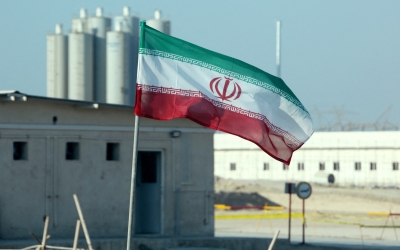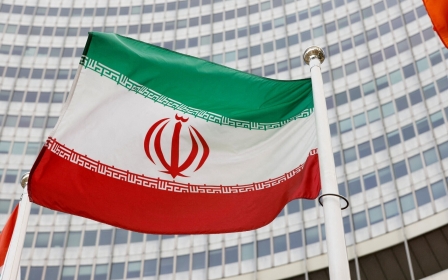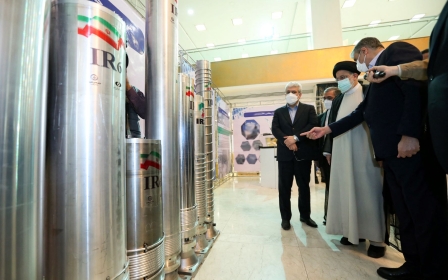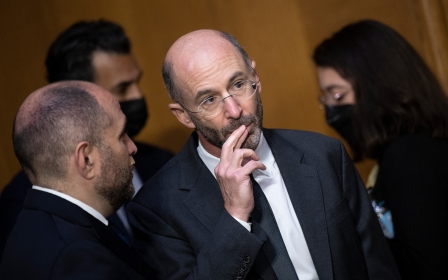Nuclear talks: Iran offers concession on IRGC terror designation for sanctions relief
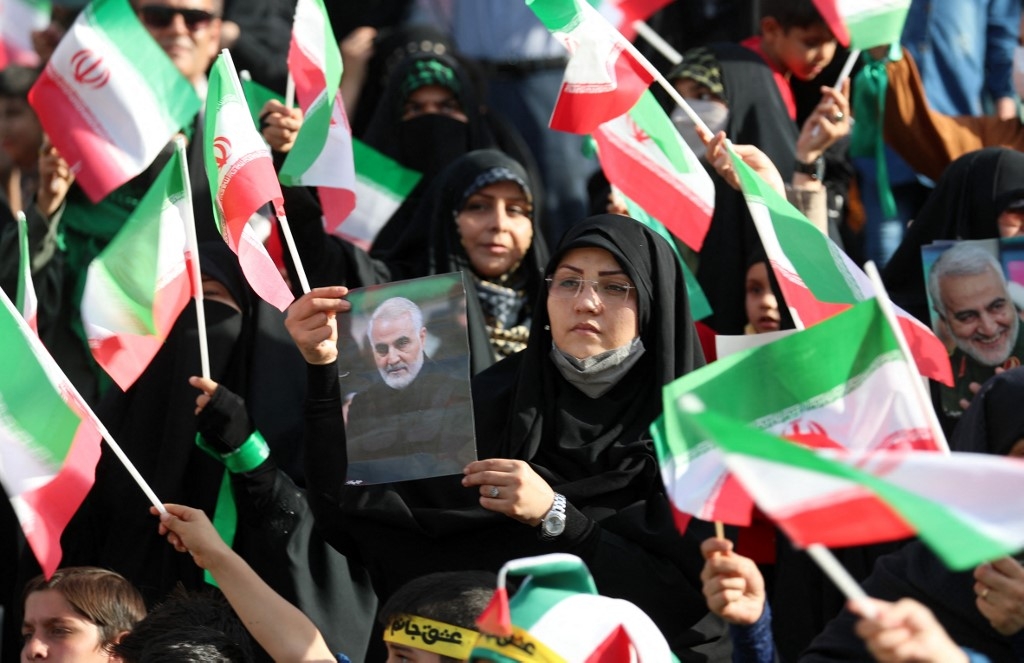
Tehran has dropped its condition that the Iranian Revolutionary Guard Corps (IRGC) be dropped from Washington's list of terror groups in return for sanctions relief in order to conclude the stalled efforts to revive the nuclear deal, sources told Middle East Eye.
The 2015 nuclear deal, known as the Joint Comprehensive Plan of Action (JCPOA), was signed between Iran and the United States during the administration of Barack Obama to limit Iran's nuclear programme in return for US sanctions relief. But in 2018, then-US President Donald Trump unilaterally exited the deal and reimposed the sanctions.
After Joe Biden came to power last year, talks to revive the deal restarted, but have been stalled since March as Iran demanded the White House reverse Donald Trump's April 2019 decision to designate the IRGC as a foreign terror organisation (FTO). The US administration has so far rejected this Iranian demand, describing it as "beyond" the deal.
Now, the IRGC listing is understood to be the final remaining impediment to a negotiated return to the deal, which many say is the only path towards keeping Iran away from obtaining an atomic bomb.
While chances for the revival of the JCPOA seem to be slim, a source told Middle East Eye that Iran, in a new proposal, has dropped its IRGC demand, but has called for lifting of sanctions imposed by the US against Khatam-al Anbiya Construction Headquarters, an economic arm of the IRGC, and a few other entities.
Another source told MEE that the US has yet to respond to the offer, which is a "middle way" solution.
However, statements by US officials suggest the US is not in favour of the new proposal. On Wednesday, State Department spokesperson Ned Price stated: "Tehran needs to decide to drop issues that are extraneous to the JCPOA.
"We believe that if Iran makes this political decision, we'll be in a position to conclude and to pursue a mutual return to compliance with the JCPOA very swiftly," he said.
'Costly' concession
Washington has emphasised that if Tehran seeks extraneous concessions from the US, it also needs to offer concessions beyond the JCPOA, such as an agreement not to target each other's officials.
Meanwhile, a source confirmed to MEE that there has been such an agreement on the table, with Iran and the US considering an agreement not to target each other's officials in return for the IRGC's removal from the FTO list.
The source added, however, that the US wanted Iran to go public with this agreement as the two countries "have no trust in each other". Hearing this insistence, Iran retreated from its previous agreement.
"It was very costly for the conservative government of President Ebrahim Raisi to declare that they have reached a deal over not killing US officials including former officials," an Iranian political analyst told MEE, speaking on condition of anonymity.
'It was very costly for the conservative government of President Ebrahim Raisi to declare that they have reached a deal over not killing US officials including former officials'
- Iranian political analyst
"This was against their previous promise that killers of the slain Quds commander Qassem Soleimani would be pursued."
In 2020, Trump ordered the assassination of General Soleimani, the top IRGC commander, who was killed in a US air strike on 3 January during an official trip to Iraq.
Following the disagreement over publicly vowing not to target US officials, Iran and the US waited weeks to hear a possible concession from the other side, but this didn't happen.
Even in May, the European Union sent its representative to Iran, but again no flexibility was shown from either side. At the time, there were reports that Enrique Mora, the EU negotiator, had conveyed the US message to Tehran that they would not be able to remove the IRGC from the FTO list as part of the JCPOA revival deal, but might negotiate the issue at a future point.
On 8 June, Iran's Foreign Minister Hossein Amir-Abdollahian stated that Tehran had put a new offer on the table, without providing further details. He also warned that if the US and three European countries (France, UK, and Germany) pass a resolution against Iran in the Board of Governors of the International Atomic Energy Agency, Tehran would react harshly.
However, the US did pass a resolution against Iran for its lack of cooperation with the IAEA over uranium particles found at three Iranian "undeclared" sites.
"The US seems to be playing with time as it knows Iran has economic troubles," the political analyst told MEE.
"It would be very difficult for Iran to retreat from its demand [to delist IRGC] as that would seriously damage Raisi and the whole hardliners' supporting base."
He added: "The public's pressure on Raisi has increased, with many on social networks and in the media pointing fingers at him and Ali Bagheri, the head of his negotiation team, for their lack of skills in negotiation.
"That's why they are in a difficult position. If they give up on their demands, they would face hardlines' anger, and if they don't restore the 2015 nuclear deal, people would turn away from them."
Meanwhile, a number of Iranians have written a letter to US President Biden and Secretary of State Antony Blinken, urging them to resolve their problem in having entry to the US being denied due to their having served in the IRGC in the past during a period of conscription.
"My immigration application and that of many others, including immigrants, students, and lottery winners [to enter the US], have been rejected because of our conscription period in the IRGC. We are not allowed to enter the United States," Payman, an Iranian engineer and former IRGC conscript, told MEE.
"We are separated from our family members and are losing our educational and professional positions," he said, pointing out that he is unable to travel to his wife in the US due to this problem.
He added that they had sent letters to US officials and lawmakers urging them to "differentiate between conscripts and IRGC staff".
This article is available in French in Middle East Eye French edition.
Middle East Eye propose une couverture et une analyse indépendantes et incomparables du Moyen-Orient, de l’Afrique du Nord et d’autres régions du monde. Pour en savoir plus sur la reprise de ce contenu et les frais qui s’appliquent, veuillez remplir ce formulaire [en anglais]. Pour en savoir plus sur MEE, cliquez ici [en anglais].


